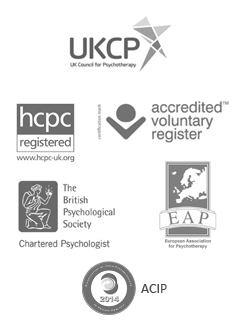Unloading Stress Before it Explodes
Reader’s Question
I have a very stressful job in IT. I love my job — it’s probably the best job I’ve had. But I let the stress build up like a bag of garbage and I carry it around for months. Then, I usually let the bag explode on the people I love. It is usually when something is said at home. The last time I blew up I said a lot of things and did a lot of things I don’t remember. I just remember this boiling feeling rise up inside of me. My wife told me about what I said and did, but I don’t remember it. I need something that will keep me from carrying around this garbage and letting it explode.
Psychologist’s Reply
What a great way to describe how stress and frustration can build and burst when we don’t have ways to manage it or prevent ourselves from releasing it as it comes. Many people experience stress and other difficulties in the way you’ve described — they just ignore it or hope it will go away until it then takes over in a very uncontrollable way. Thankfully, there are strategies that can help anyone to pay better attention to the stresses as they come and find constructive ways to manage them rather than having them manage you.
The first step is to begin to notice and pay attention to stress itself. Do you notice it, but push it aside? Or, do you only notice the stress when it’s too late? Begin to pay attention to stress itself — especially in your body. Some people feel stress in their neck/shoulders, some feel tightness in their head, chest, or stomach. Where is your stress?
The next step is to begin to notice the events that happen before you feel the stress. Is it something someone says? Is it a work deadline you receive? Is it interpersonal tension at the office? What are the situations that seem to influence the stress?
Once you’ve noticed how the stress feels and the events that happen before the stress comes, you can begin to think more about the stressful situations — particularly the thoughts that come to you about the situations. For example, after being given a deadline, some automatic thoughts might be: “Are they crazy? That’s too soon!” or “I’ll never meet this deadline.” Notice what other thoughts snowball afterward — perhaps thoughts such as “How will I get my other work finished?” or “How will I have time to go to my kid’s game this weekend?” or “I’ll never get any down time this week,” etc.
Some people have found help in the research supported Mindfulness-Based Stress Reduction (MBSR) to help them better explore and release the stressful thoughts that can build. The program has been adapted into several workbooks that are very easy to use. The overall goal of MBSR is to build your mindfulness “muscle” through short daily practice, so that when stress comes you can manage it easily instead of letting it build, carrying it around with you, then having it explode when you least expect it.
For anyone who finds themselves in a similar situation, I like to recommend the workbook by Bob Stahl, PhD and Elisha Goldstein, PhD, A Mindfulness-Based Stress Reduction Workbook [Amazon-US | Amazon-UK]. It might be worth trying instead of carrying such a heavy load with you all the time.
Please read our Important Disclaimer.
All copyrights for this article are reserved to ask a therapist


Recent Comments